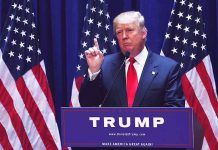
A university’s directive to avoid using traditional familial terms has ignited a debate between inclusivity and preserving long-standing societal norms.
At a Glance
- The university advised students to avoid using terms like “mum” and “dad”.
- Critics argue this disrupts traditional family structures.
- Proponents claim it is a step towards greater inclusivity.
- This reflects broader challenges in evolving academic institutions.
Directive Sparks Controversy
The recent directive asks students to use more inclusive language by refraining from terms such as “mum” and “dad”. This move aims to make campus language more sensitive to diverse family structures. However, it has been met with significant criticism from those who view this as an encroachment on traditional familial values.
According to the directive, such adjustments are essential for fostering an inclusive environment where all students feel recognized and respected, regardless of their personal backgrounds.
The Argument for Inclusivity
Proponents of the directive argue that language plays a crucial role in shaping identities and ensuring inclusivity. They contend that changing the language used on campus can help foster a more inclusive atmosphere where students from non-traditional families feel equally respected.
Studies have shown that inclusive education benefits everyone. For example, “the “inclusion for some” represents the idea that children with special needs have a right to the highest quality education which can be delivered by specially trained staf.” They argue that generalizing this inclusivity can provide similar benefits in broader social contexts.
The term “diversity, equity, and inclusion” (DEI) is meant to sound unambiguously beneficent.
But many of the professors I spoke with understand that DEI instead implies a set of controversial political and social views.
My latest in @TheFP.
— John Sailer (@JohnDSailer) January 9, 2023
Concerns on Disrupting Societal Norms
Critics of the directive fear it could disrupt long-standing familial structures integral to societal function. Many believe that terms like “mum” and “dad” are deeply rooted in cultural and familial identity, and removing them from everyday usage could erode traditional family values.
They argue that while inclusivity is important, it should not come at the cost of invalidating established societal norms that have long been the cornerstone of community and family life. The balance between inclusivity and tradition remains a delicate issue.
This is great news. Mandatory DEI statements aren’t the same as universities prioritizing inclusion or preventing discrimination. These statements — not fundamentally different than “Are you now or have you ever been a member of the Communist Party?” — create campus orthodoxies. https://t.co/vsZ0D3LI1G
— Alex Morey (@1AMorey) May 4, 2024
Balancing Inclusivity and Tradition in Education
The debate also raises broader questions about how educational institutions can evolve while respecting various perspectives. Universities often face challenges balancing the need for inclusivity with maintaining academic standards and traditional practices.
As highlighted by a blog from Princeton University, “universities must balance the anti-censorship principle with academic standards and inclusivity to foster rigorous, constructive, truth-seeking discussions.”
Creating an environment that welcomes diverse perspectives while preserving essential societal values will be key to navigating these changes effectively.
The on-going debate mirrors the essence of the “inclusion for all” philosophy, which “stresses participation and learning with peers.” For our universities to truly become inclusive, it will take productive professional collaboration to merge traditional values with modern inclusivity standards for the benefit of all.








